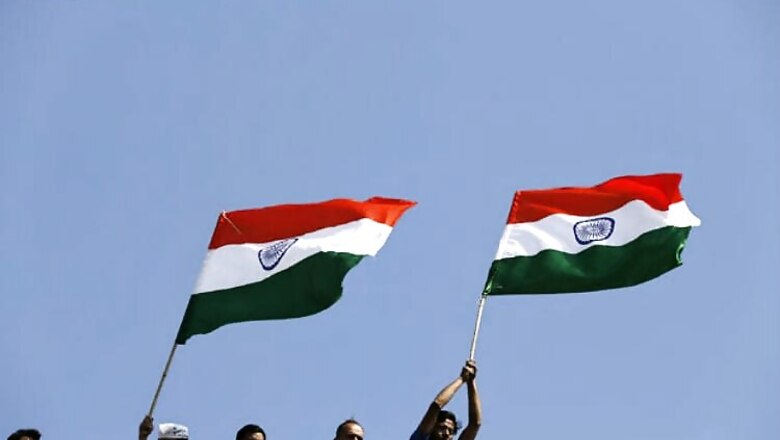
views
New Delhi: India continued to rank low in the Human Development Index (HDI), but climbed five notches to the 130th rank in the latest UNDP report on account of rise in life expectancy and per capita income.
India ranked 130 among 188 countries in 2014 in Human Development Report 2015 released on Monday by the United Nations Development Programme (UNDP). The country's rank was 135 according to the 2014 report.
"India's HDI value for 2014 is 0.609, which puts the country in the medium human development category, positioning it at 130 out of 188 countries and territories.
"Between 1980 and 2014, India's HDI value increased from 0.362 to 0.609, an increase of 68.1 per cent or an average annual increase of about 1.54 per cent," a note circulated with the report said.
Norway topped followed by Australia and Switzerland. As per the report, the HDI rank of Bangladesh and Pakistan was 142 and 147, respectively. Among the BRICS nations, India was ranked lowest.
The HDI is an average measure of basic human development achievements in a country. It is a summary measure for assessing long-term progress in three basic dimensions of human development -- a long and healthy life, access to knowledge and a decent standard of living.
Life expectancy at birth increased to 68 years in 2014 from 67.6 in the previous year and 53.9 in 1980. Gross National Income (GNI) per capita was USD 5,497 in 2014 up from USD 5,180 in 2013 and USD 1,255 in 1980. India's GNI per capita increased by about 338 per cent between 1980 and 2014.
However as per the report, the expected years of schooling is stagnant at 11.7 since 2011. Also, mean years of schooling at 5.4 has not changed since 2010.
Between 1980 and 2014, India's life expectancy at birth increased by 14.1 years, mean years of schooling increased by 3.5 years and expected years of schooling increased by 5.3 years.
According to the report, India's 2014 HDI of 0.609 is below the average of 0.630 for countries in the medium human development group and above the average of 0.607 for countries in South Asia.
From South Asia, countries which are close to India in 2014 HDI rank and to some extent in population size are Bangladesh and Pakistan, which have HDIs ranked 142 and 147, respectively.
The report further said India's HDI for 2014 is 0.609. However, when the HDI for 2014 value is discounted for inequality, the HDI falls to 0.435, a loss of 28.6 per cent due to inequality in the distribution of the HDI dimension indices.
Bangladesh and Pakistan show losses due to inequality of 29.4 per cent and 29.9 per cent, respectively. The average loss due to inequality for medium HDI countries is 25.8 per cent and for South Asia it is 28.7 per cent. The Human inequality coefficient for India is equal to 27.7 per cent.
On Gender Development Index (GDI), the report said the 2014 female HDI value for India is 0.525 in contrast with 0.660 for males, resulting in a GDI value of 0.795. In comparison, GDI values for Bangladesh and Pakistan are 0.917 and 0.726, respectively.
Talking about Gender Inequality Index (GII), it said India has a GII value of 0.563, ranking it 130 out of 155 countries in the 2014 index.
In India, 12.2 per cent of Parliamentary seats are held by women, and 27 per cent of adult women have reached at least a secondary level of education compared to 56.6 per cent of their male counterparts. For every 1,00,000 live births, 190 women die from pregnancy related causes; and the adolescent birth rate is 32.8 births per 1,000 women of ages 15-19. Female participation in the labour market is 27 per cent compared to 79.9 per cent for men.
In comparison, Bangladesh and Pakistan are ranked at 111 and 121, respectively, on this index. The 2015 Human Development Report (HDR) Work for Human Development examines the intrinsic relationship between work and human development.
Work, which is a broader concept than jobs or employment, can be a means of contributing to the public good, reducing inequality, securing livelihoods and empowering individuals, the report said.
"Work allows people to participate in the society and provides them a sense of dignity and worth. In addition, work that involves caring for others or voluntarism builds social cohesion and strengthens bonds within families and communities," the report said.















Comments
0 comment